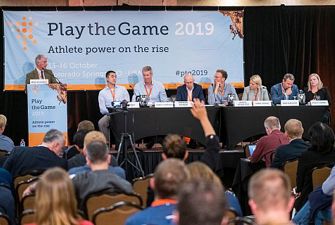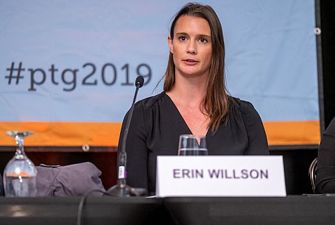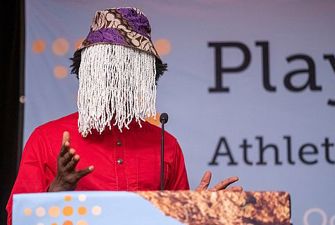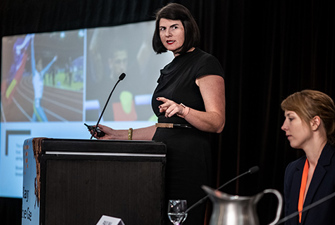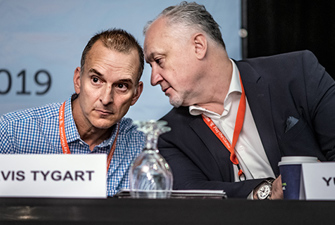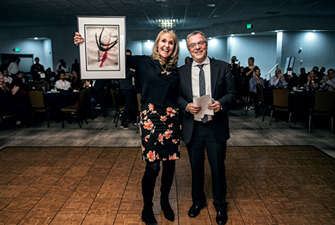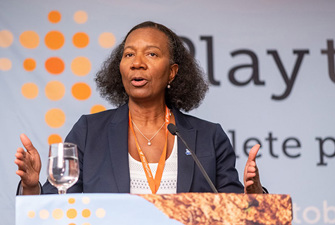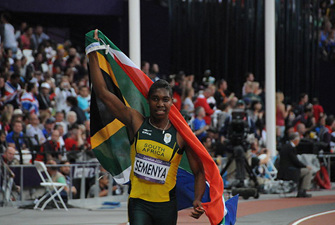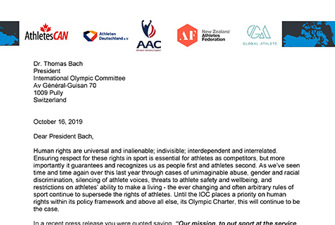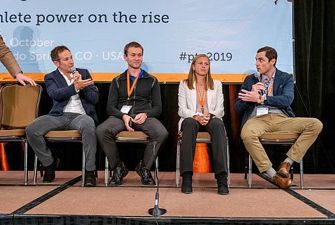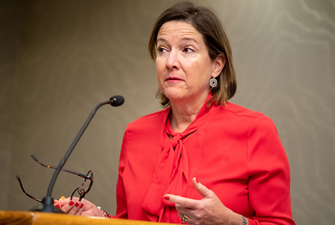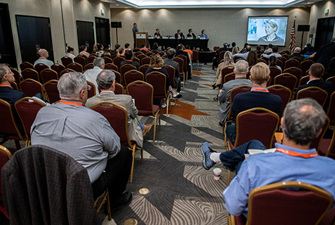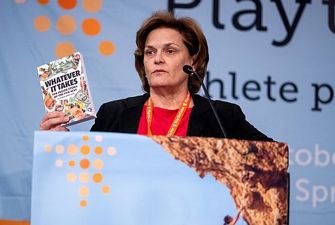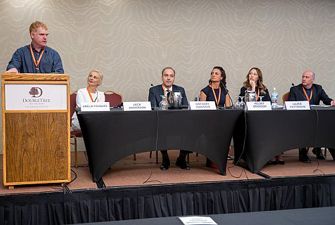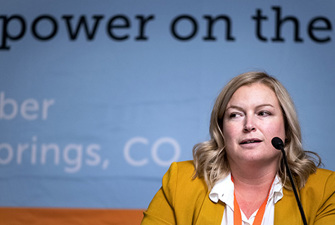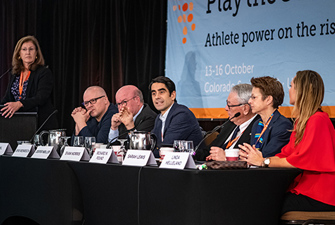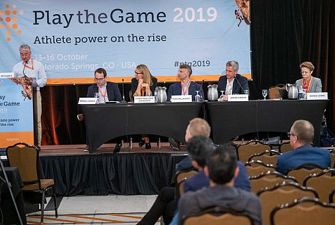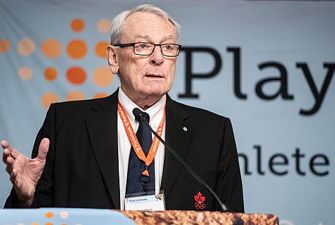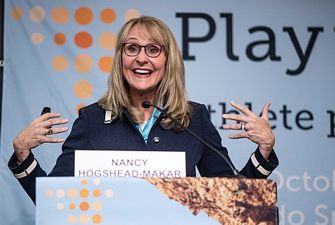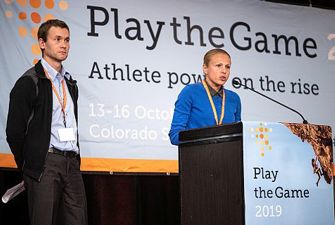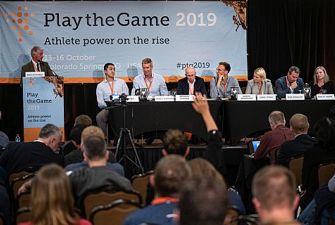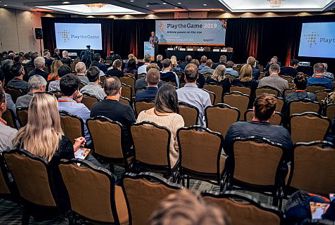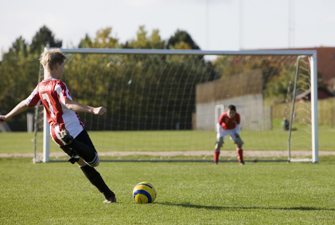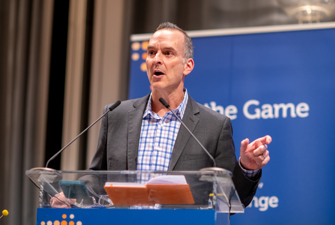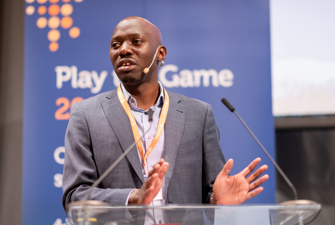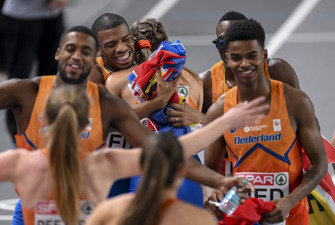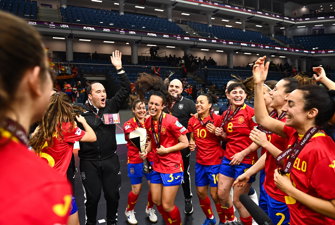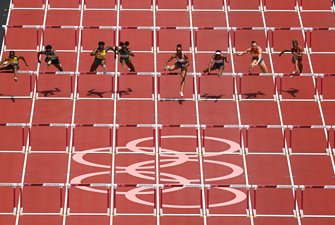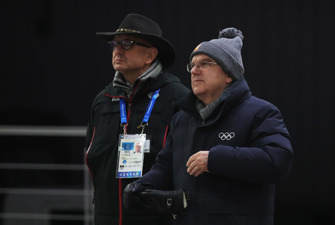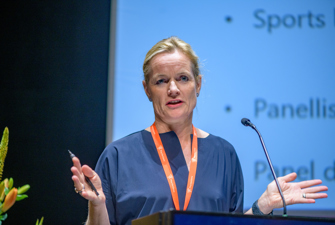The U.S. questions how to measure good governance in sport
At Play the Game 2019 Assistant professor Spencer Harris from the University of Colorado Colorado Springs called for adjustments of the National Sports Governance Observer.
At the Play the Game-conference in Colorado Springs, experts from six countries presented results from the National Sports Governance Observer (NSGO) study showing the status of good governance in national governing bodies (NGB) in sport.
Researchers from Australia, Canada, Colombia and the U.S. all presented preliminary findings of the NSGO benchmarking, whereas research in Georgia and Lithuania had already been completed enabling researchers to present the final NSGO results.
The results presented showed great varieties between countries and between the surveyed NGBs – some of which were quite surprising to the experts. Although the experts generally found the NSGO benchmarking tool and the research useful, one of them also called for some adjustments of the tool.
Assistant professor Spencer Harris from University of Colorado Colorado Springs used his presentation as an opportunity to identify strengths and areas of potential improvements of the tool and to highlight some areas where the tool should be adjusted to give a more accurate picture of good governance in national sports federations.
According to Harris, cooperation from national sport governing bodies (NGBs) during the data collection process is critical to accurate assessment and since the ability of NGBs to cooperate is guided by the size and the capacity of the NGB these parameters should be considered to a higher degree than it is currently in the NSGO benchmarking tool.
In the U.S., the interest of the NGB’s to participate in the research was very different. Six NGB’s across US handball, weightlifting, track & field, swimming, tennis and soccer were asked to participate. Three sports had participated to a high degree, two had participated moderately and one large sport had declined to participate in the study.
“Do we need 274 indicators?”
The number of employees in the surveyed NGB’s in the U.S. range from 4 in the USA Team Handball to 1,487 in the U.S. Soccer Federation. And the different approach from no or only moderate corporation in the NGB’s with limited capacity to high corporation in the NGB’s with high capacity, made Harris question the quality of Play the Game’s benchmarking tool to measure the four dimensions: Transparency, Democratic processes, Internal accountability and Societal responsibility by using 46 principles and 274 indicators:
“Do all indicators measure good governance in the way that was intended? Are all indicators equal? Do we need 274 indicators to measure good governance? Is the NSGO adaptation proportionate to the capacity of small-large NGB’s? How do we better consider the conditions of different cultural settings? How can we more effectively assess governance practices?” Harris said.
The U.S. score on the NSGO index reached 53 % while the score in Canada surprisingly to most of the experts only reached a preliminary score of 37 %. According to the Canadian expert Assistant professor Ryan Gauthier from Thompson Rivers University, the low score could be a result of a very little interest in the Canadian NGB’s to participate.
In comparison to the two North American results, professor Ana Maria Arias from the Universidad de Ciencias Aplicades y Ambientales in Colombia presented a score of 49 % in her country. And according to Edvinas Eimontas, a partner at the Sports Policy Institute in Lithuania, the NGB’s in his country scores 43 % yet here the survey was carried out on sports different from the other countries, so results were not directly comparable.
Of the six countries that presented their findings at the Play the Game conference, Georgia had the lowest score. According to Anatoli Korepanov, the founder and CEO of the NGO ‘Sport for Development – Georgia’ his country scored 21 % in the NSGO index. According to Korepanov initiatives have been taken by the Parliamentary Committee on Sport in Georgia making recommendations to executive authorities to strengthen governance in national sport and in this way the NSGO study had been useful.
